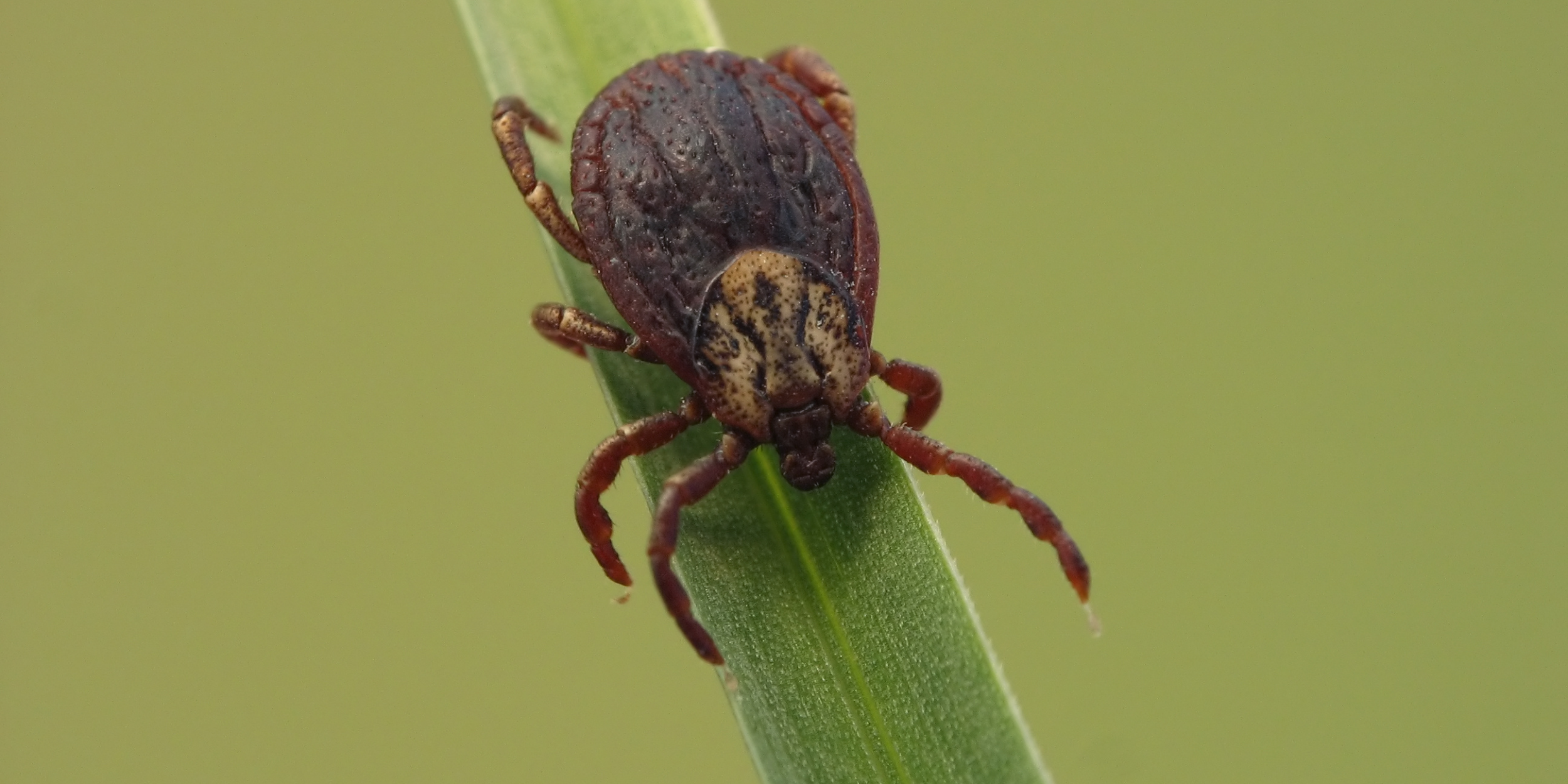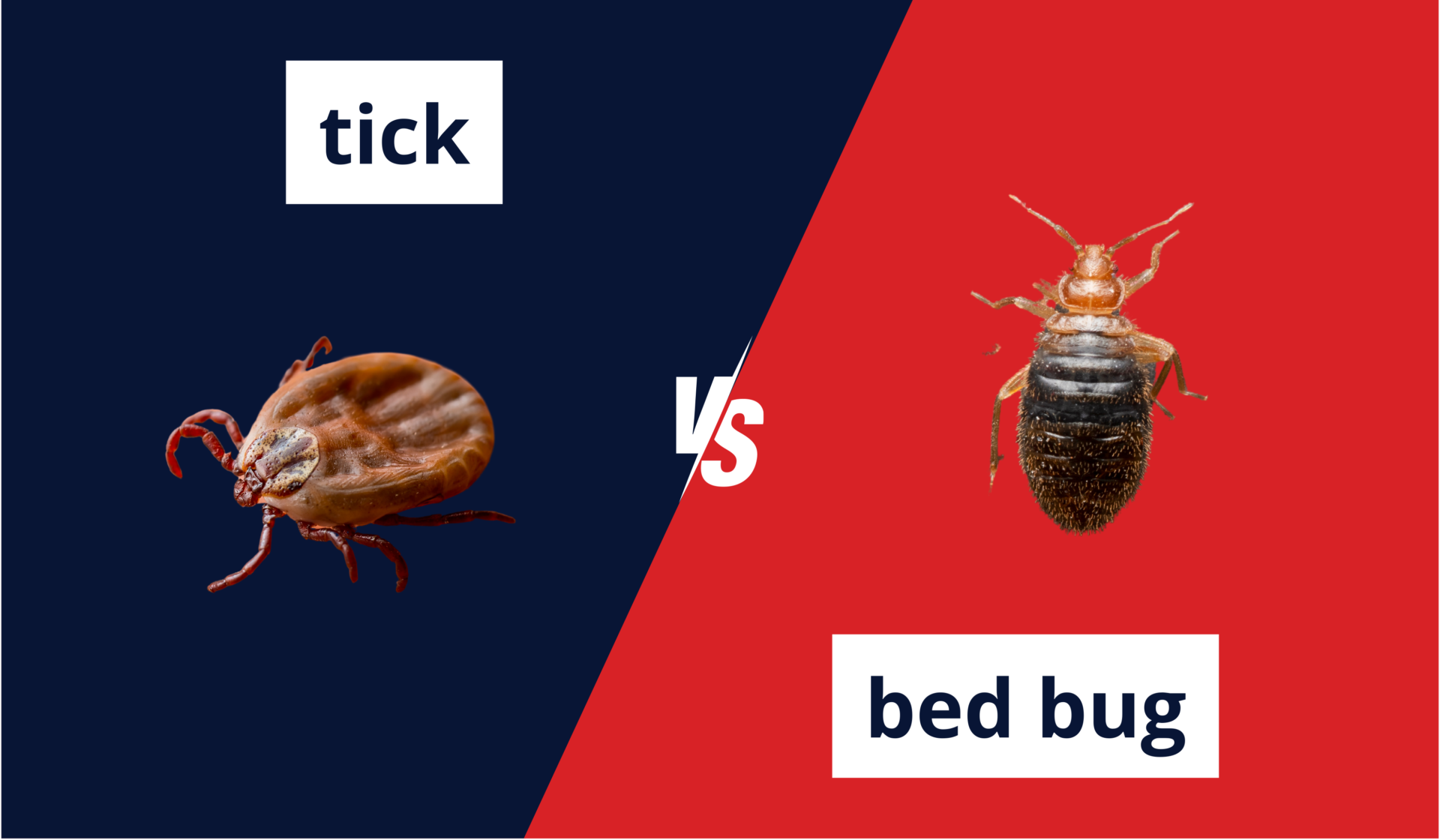
Ticks lurk outdoors, thirsting for blood from birds to humans, and might bring diseases like Lyme disease. Bed bugs, the indoor invaders, love cozying up in your bed to snack on you at night, but they don’t spread diseases.
Knowing the difference between these critters is crucial to keep them at bay. So, if you’re trying to figure out whether you’re seeing ticks or bed bugs, keep reading!
Key Takeaways
- Ticks and bed bugs are distinct pests with unique health risks, requiring different identification and control strategies.
- Ticks are blood-sucking arachnids that can transmit diseases like Lyme and Rocky Mountain spotted fever, while bed bugs are insects causing itchy welts but do not transmit diseases.
- Preventing tick and bed bug infestations involves maintaining your yard, using repellents, conducting regular home inspections, and keeping your environment tidy.
- Professional pest control is recommended for severe or complex infestations. It ensures the safe and effective elimination of ticks and bed bugs.
UNDERSTANDING TICKS AND BED BUGS IN LOUISIANA
As Louisiana residents, you must distinguish between ticks and bed bugs. Both blood-sucking pests present unique health risks and require different control approaches.
Proper identification is the first step toward effective prevention and treatment.
- Health Risks: Both pests present distinct health challenges.
- Identification: Accurate identification allows for targeted pest management strategies.
- Pest Behavior: Understanding the behavior of these pests is also vital.
TICKS VS BED BUGS: KEY DIFFERENCES

Distinctions between ticks and bed bugs range from appearance to behavioral patterns, particularly regarding human interaction.
Appearance
Let’s examine the distinct physical features that separate ticks and bed bugs.
| Feature | Ticks | Bed Bugs |
| Size | 3mm to 5mm (can grow larger with feeding) | 5mm to 7mm |
| Shape | Flattened oval, teardrop-shaped when engorged | Broad, oval, and flat; balloon-like after feeding |
| Color | Varies (brown, black, reddish-brown) | Reddish-brown, becoming darker after feeding |
| Habitat | Woody, bushy areas with high grass; live outdoors | Indoors, close to host sleeping areas; hide in mattresses, furniture, and cracks |
| Active Time | Daytime, especially in warmer months | Nighttime, peak activity an hour before dawn |
| Feeding Frequency | Every few days to weeks, depending on the life stage | Every 5-10 days; can survive months without feeding |
Behavior and Bites
Ticks and bed bugs have distinctly different behaviors regarding biting and the consequences of their bites.
Ticks
- Attachment: Ticks embed themselves into the skin with sharp mouthparts.
- Feeding Duration: They feed on blood for several days.
- Disease Transmission: Capable of transmitting Lyme disease and Rocky Mountain spotted fever.
Bed Bugs
- Feeding Habits: Bed bugs feed quickly, usually without the host noticing.
- Bite Reaction: Bites often result in red, itchy welts.
- Health Impact: While not disease carriers, their bites can cause allergic reactions and secondary infections from scratching.
PEST PREVENTION AND CONTROL STRATEGIES
Preventing pests like ticks and bed bugs is crucial. As homeowners, you can significantly reduce the risk of infestation by implementing effective control strategies.
At LaJaunie’s Pest Control, here’s what we recommend you do to protect your family from bed bugs and ticks:
| Recommended Action | Description |
| Maintain the Yard | Keep grass short and shrubbery trimmed to minimize tick habitats. |
| Use Repellents | Apply insect repellent containing DEET or permethrin, especially when entering areas known for ticks. |
| Regular Inspection | After spending time outdoors, check clothing and pets for ticks before entering the home. |
| Seal Entry Points | Caulk cracks and crevices to prevent bed bugs from entering the home. |
| Keep a Tidy Home | Regular vacuuming can help remove ticks and potential bed bug eggs before they hatch. |
| Declutter | Reduce clutter where bed bugs can hide and simplify inspection. |
| Protect Your Bed | Use bed bug-proof encasements on mattresses and pillows to deter infestations. |
| Monitor your Pets | Treat pets with vet-approved tick repellent and check them regularly for ticks. Use tweezers with caution. |
| Use Heat | Wash and dry clothing and bedding at high heat to eliminate bed bugs. |
| Professional Inspection | If living in areas prone to tick infestation, consider an annual inspection by pest control experts. |
WHEN TO CALL THE PEST EXPERTS
Recognizing when you’re out of your depth with pest problems is crucial. With ticks and bed bugs, you sometimes need to throw in the towel and dial the pest control professionals.
Wherever you’re in Louisiana, seeking expert help should be easy. For immediate intervention for a severe infestation, let Lajaunie’s tick and bed bug control specialists tailor a solution that’s right for your home.
For more information about the areas we service, visit our location page.
Don’t let these pests make a playground out of your home. At the first sign of a severe infestation, it’s perfectly okay to seek help from us – we’re just a call away.